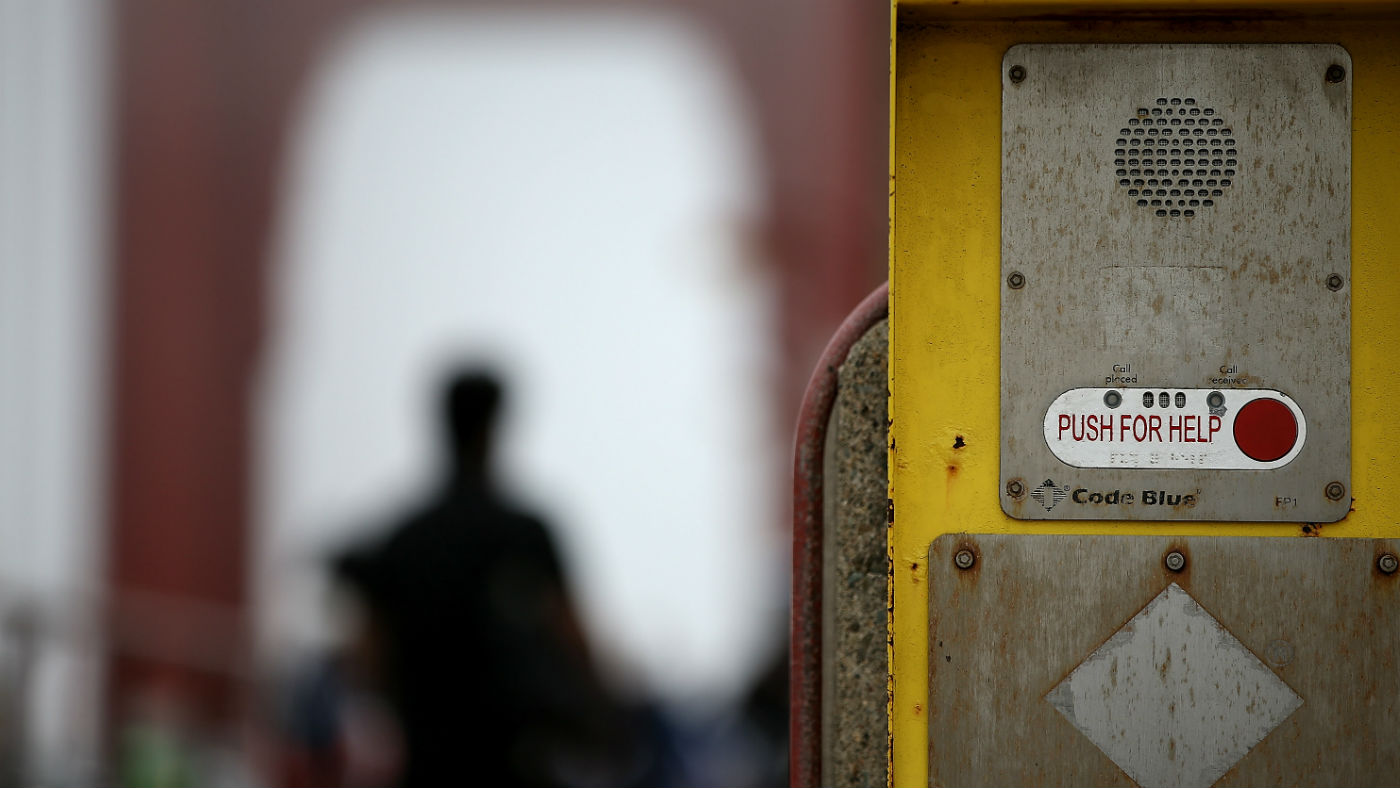Global suicide rate falls by third in 30 years
China and India experience huge drop in suicides, but still make up nearly half of all deaths

A free daily email with the biggest news stories of the day – and the best features from TheWeek.com
You are now subscribed
Your newsletter sign-up was successful
The global suicide rate has fallen by a third in the past three decades driven by a sharp drop in those taking their own life in China and India, new analysis has found.
A study in the British Medical Journal reveals that while the actual number of deaths from suicide increased by 6.7% between 1990 and 2016, because of an increase in the global population the actual rate of suicide dropped by 33%.
Over that period the suicide rate fell from 16.6 deaths per 100,000 people to 11.2 per 100,000. Men are over twice as likely to take their own life (15.6 per 100,000) compared to women (7 per 100,000).
The Week
Escape your echo chamber. Get the facts behind the news, plus analysis from multiple perspectives.

Sign up for The Week's Free Newsletters
From our morning news briefing to a weekly Good News Newsletter, get the best of The Week delivered directly to your inbox.
From our morning news briefing to a weekly Good News Newsletter, get the best of The Week delivered directly to your inbox.
As a result of the drop, more than four million lives have been saved, The Economist reports.
“While this is undoubtedly good news, researchers point out that rates vary widely between regions as well as between income groups,” says the Daly Telegraph, adding that “because people are unwilling to report deaths by suicide in some lower and middle income countries the rate could be higher.”
Suicide remains the leading cause of death in high income countries in the Asia Pacific region, although much of the global decline has been driven by China, which saw a 64% decrease between 1990 and 2016, and to a lesser extent India.
The world’s two most populous nations still account for nearly half (44.2%) of all the world’s suicides.
A free daily email with the biggest news stories of the day – and the best features from TheWeek.com
“The changes observed in China have been attributed to economic growth, urbanisation, improved standards of living, and better access to medical care in rural areas,” the BMJ report’s authors wrote.
In India, where suicide rate among women and young people has fallen dramatically, “young rural women have more options, such as making a living on their own in cities or attaining higher levels of education, rather than languishing in abusive or unhappy marriages” says Yahoo News.
At the opposite end of the spectrum, the suicide rate in Zimbabwe rose 96%, from about 14 per 100,000 to nearly 28 across the same period.
In the UK, the global figures play out at a national level, where suicide rates among men have fallen to their lowest levels since the early 1980s.
Yahoo news cites successful suicide prevention programmes in Israel and Sri Lanka that “add credence to the idea that restricting the means of self-harm can reduce suicide rates”.
According to TIME, “the decline in the global suicide rate corresponded with an overall downturn in the global mortality rate among all causes of deaths, suggesting that suicide could be effectively reduced if dealt with like any other illnesses”.
The World Health Organisation lists suicide as a critical public health issue and reports that at least 800,000 people commit suicide every year. Its Comprehensive Mental Health Action Plan 2013-2020 aims to reduce suicide mortality by a third between 2015 and 2030.
-
 Local elections 2026: where are they and who is expected to win?
Local elections 2026: where are they and who is expected to win?The Explainer Labour is braced for heavy losses and U-turn on postponing some council elections hasn’t helped the party’s prospects
-
 6 of the world’s most accessible destinations
6 of the world’s most accessible destinationsThe Week Recommends Experience all of Berlin, Singapore and Sydney
-
 How the FCC’s ‘equal time’ rule works
How the FCC’s ‘equal time’ rule worksIn the Spotlight The law is at the heart of the Colbert-CBS conflict
-
 Epstein files topple law CEO, roil UK government
Epstein files topple law CEO, roil UK governmentSpeed Read Peter Mandelson, Britain’s former ambassador to the US, is caught up in the scandal
-
 Iran and US prepare to meet after skirmishes
Iran and US prepare to meet after skirmishesSpeed Read The incident comes amid heightened tensions in the Middle East
-
 EU and India clinch trade pact amid US tariff war
EU and India clinch trade pact amid US tariff warSpeed Read The agreement will slash tariffs on most goods over the next decade
-
 Israel retrieves final hostage’s body from Gaza
Israel retrieves final hostage’s body from GazaSpeed Read The 24-year-old police officer was killed during the initial Hamas attack
-
 China’s Xi targets top general in growing purge
China’s Xi targets top general in growing purgeSpeed Read Zhang Youxia is being investigated over ‘grave violations’ of the law
-
 Panama and Canada are negotiating over a crucial copper mine
Panama and Canada are negotiating over a crucial copper mineIn the Spotlight Panama is set to make a final decision on the mine this summer
-
 Why Greenland’s natural resources are nearly impossible to mine
Why Greenland’s natural resources are nearly impossible to mineThe Explainer The country’s natural landscape makes the task extremely difficult
-
 Iran cuts internet as protests escalate
Iran cuts internet as protests escalateSpeed Reada Government buildings across the country have been set on fire